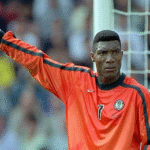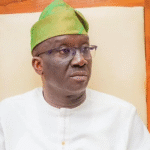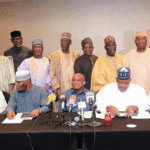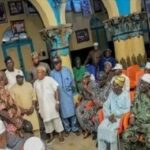Presidential adviser fires back at fund’s economic recommendations, calling them unrealistic and harmful to recovery efforts.
Abuja, Federal Capital Territory – The Nigerian Presidency launched a scathing attack on the International Monetary Fund (IMF) this week, accusing the global lender of sabotaging the country’s economic recovery with a “discouraging and fatalistic” outlook. Special Adviser to the President on Economic Affairs, Tope Fasua, delivered the sharp rebuke during a heated television interview on Channels Television’s The Morning Brief on Tuesday.
A Presidential Counterpunch
Fasua didn’t mince words when addressing what he sees as the IMF’s contradictory stance on Nigeria’s economic progress. The presidential adviser expressed frustration with the fund’s mixed messaging, pointing out a glaring disconnect between praise and pressure.
“They said our reforms are good, yet they keep piling on pressure,” Fasua declared, his irritation evident during the live television appearance. The timing of the IMF’s latest criticism particularly stung, coming just as Nigeria rolled out significant policy wins for ordinary citizens.
“We’ve just signed tax relief bills for low-income earners and small businesses, but before they settle, the IMF is already issuing pessimistic statements that leave Nigerians confused,” he explained, highlighting the government’s efforts to provide immediate relief to struggling families and entrepreneurs.
Rejecting the Washington Prescription
The Presidency took direct aim at the IMF’s July 7 article titled “How Nigeria Can Unleash Its Economic Potential,” dismissing its recommendations as detached from Nigerian realities. Fasua painted the fund’s demands as those of an impatient creditor rather than a supportive partner.
“We’ve repaid $3 billion of our COVID-19 loan something many countries have yet to do. Yet, they behave like landlords banging on our door every few days,” he said, emphasising Nigeria’s responsible debt management while many nations still struggle with pandemic-era borrowing.
The presidential adviser used a powerful metaphor to describe Nigeria’s economic transformation, comparing current reforms to major construction work. He argued that expecting immediate results was like demanding a house function perfectly while “ripping off the roof” and rebuilding its foundations from scratch.
Fighting the Interest Rate Battle
Fasua reserved his sharpest criticism for the IMF’s push for even higher interest rates, a recommendation he characterised as economically destructive. The Central Bank was already working carefully to reduce rates, he insisted, making the fund’s advice not just wrong but dangerous.
“They want us to keep raising interest rates but to what end?” Fasua challenged, pointing to concrete evidence that Nigeria’s current approach was working. Recent months have shown clear progress, with inflation dropping consistently.
“Inflation has reduced over the last three months and will continue to drop,” he stated confidently, before delivering a particularly cutting assessment of the IMF’s economic analysis. “Whoever wrote that report does not sound like an economist, because economists don’t operate on fantasy.”
A Plea for Time and Understanding
Despite the combative tone, Fasua’s message ultimately focused on protecting ordinary Nigerians from economic hardship. He defended President Tinubu’s policies as necessary medicine that needed time to work, appealing directly to citizens facing daily struggles.
“The government has done the right things and deserves time to deliver results,” he stated, before adding a more personal touch that captured the human cost of economic reform. “Let the poor breathe.”
This last appeal highlighted the delicate balance Nigeria’s leadership faces: implementing necessary but painful reforms while ensuring the most vulnerable citizens can survive the transition period. For millions of Nigerians watching prices rise and opportunities shrink, the debate between Abuja and Washington represents more than policy disagreements—it’s about their daily survival.
By Kayode Ojo








